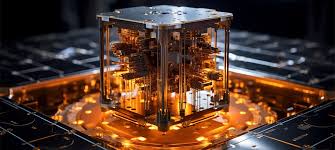
The world of technology is on the cusp of a groundbreaking transformation with the advent of quantum computing. Unlike classical computers that use bits as the smallest unit of information, quantum computers utilize qubits, which can exist in multiple states simultaneously thanks to the principles of quantum mechanics. This enables quantum computers to perform complex calculations at speeds that are orders of magnitude faster than today's fastest supercomputers. The potential applications are vast, ranging from cryptography and materials science to optimizing logistics and enhancing artificial intelligence.
One of the most exciting developments in quantum computing is the creation of stable and scalable qubits. Recent advancements by leading tech companies and research institutions have brought us closer to building practical quantum computers. For instance, the development of error correction methods and the improvement of quantum gates have significantly reduced the error rates in quantum computations. These advancements make it feasible to tackle problems that were previously thought to be intractable, opening new frontiers in science and technology.
The implications of quantum computing are profound. In the field of cryptography, quantum computers could break widely used encryption methods, necessitating the development of quantum-resistant algorithms. In medicine, they could enable the discovery of new drugs by simulating complex molecular interactions that are currently impossible to model accurately. Moreover, industries like finance, aerospace, and logistics stand to benefit immensely from the optimization capabilities of quantum computing, leading to more efficient and innovative solutions. As we continue to push the boundaries of what is possible, quantum computing promises to be a pivotal force in shaping the future of technology.